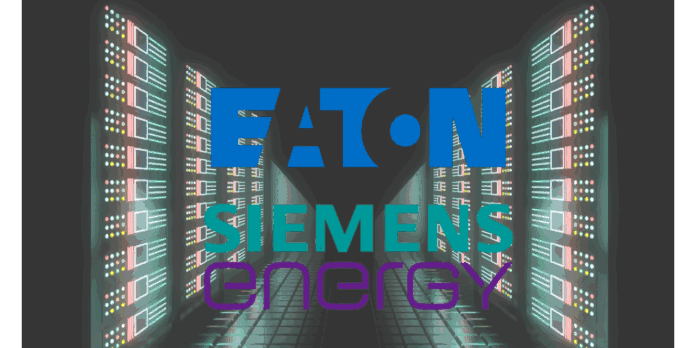Eaton will supply a comprehensive range of electrical systems, including switchgear, uninterruptible power supplies, busways, IT racks and more
In sum – what you need to know:
Fast-track data centers — Eaton and Siemens Energy team up to build data centers faster using modular designs and on-site power systems that reduce reliance on traditional grid infrastructure.
Reliable, flexible energy — The solution includes 500MW scalable power plants with gas turbines, battery storage and clean-air grid connections, helping operators meet emissions targets and energy needs.
Cut emissions, boost uptime — The joint approach allows faster deployment, lower CO2 emissions and no need for diesel backup, enabling more sustainable, high-availability AI-ready data centers.
Intelligent power management firm Eaton and Siemens Energy, a global energy technology company, have announced a joint initiative to accelerate data center construction by offering integrated onsite power systems.
The pair noted that the new collaboration aims to address growing market demand by delivering reliable, grid-independent energy solutions and standardized modular infrastructure for rapid deployment.
The partnership will enable parallel construction of data centers and their on-site power systems, incorporating grid connectivity and renewable energy options to meet regional regulatory requirements when necessary. This integrated approach gives developers and data center owners unprecedented flexibility in choosing how they build and operate their facilities, the partners said.
Siemens Energy’s contribution to this partnership centers on a modular, scalable power plant design tailored specifically for data center operations. The standard version delivers 500 megawatts (MW) of electricity using highly efficient SGT-800 gas turbines, enhanced with redundancy and battery energy storage for maximum reliability. Siemens Energy highlighted that the modular design allows the power plant to be scaled according to need and supports future carbon-neutral operation if hydrogen becomes available as part of a site’s sustainability strategy.
Also, a key feature of the Siemens Energy offering is an optional emission-free clean air grid connection, which can be installed during initial construction or added later as a retrofit, enabling data centers to provide ancillary grid services if required.
Eaton will supply a comprehensive range of electrical systems including medium- and low-voltage switchgear, uninterruptible power supplies (UPS), busways, structural supports, IT racks, containment systems and engineering and software services. These elements are essential to support and protect IT infrastructure from the medium-voltage grid to the processing chip.
Cyrille Brisson, global segment leader for data centers at Eaton, said: “Our approach of letting customers pick the right balance of energy sources is very flexible and construction to start-up time is swift with options to reduce emissions in both the short and long term. Crucially, our approach offers data center owners and developers the opportunity to build capacity and bring it online fast in any location where they have land available that is close to gas, water and fiber.”
Andreas Pistauer, global head of sales, Siemens Energy’s Gas Services Business Area, added: “We offer hyperscalers, co-locators and investors a unique package, enabling them to reduce the time-to-market by up to two years in many places which leads to significant revenue gains. Our power plant design is built with redundancy, eliminating the need for backup diesel generators, and reducing CO2 emissions by about 50%.”
Artificial intelligence (AI) data centers are the backbone of modern machine learning and computational advancements. However, one of the biggest challenges these AI data centers face is the enormous power consumption they require. Unlike traditional data centers, which primarily handle storage and processing for standard enterprise applications, AI data centers must support intensive workloads such as deep learning, large-scale data analytics as well as real-time decision-making.
AI workloads, especially deep learning and generative AI models, require massive computational power. Training models such as GPT-4 or Google’s Gemini involves processing trillions of parameters, which requires thousands of high-performance GPUs (Graphics Processing Units) or TPUs (Tensor Processing Units). These specialized processors consume a lot more power than traditional CPUs.
The hardware used in AI data centers is also more energy-intensive than standard computing equipment. GPUs, TPUs and FPGAs (Field Programmable Gate Arrays) are specifically designed for parallel processing, but this efficiency comes at the cost of huge energy demands.

